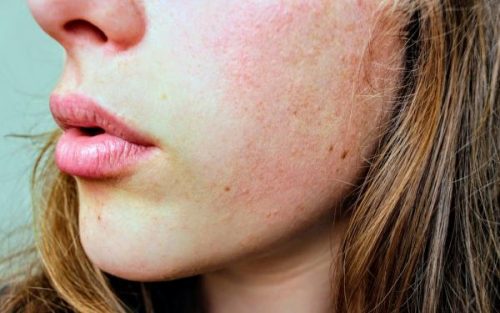A new study resulted in the discovery of an essential protein that plays a vital role in the creation of a healthy skin barrier and could lead to new treatments.
 —
—
Healthy skin is essential, as poor skin condition can have wide-reaching implications for overall health. Over the years, clinicians have employed a number of techniques, both in diagnostics and treatment methodology, to help identify and treat common and rare skin conditions.
One such skin care expert, René Serbon, located in the Okanagan Valley, BC, teaches clinicians to diagnose skin conditions such as pigmentation and adult acne with advanced techniques that include the use of skin fluorescence technology. These advanced techniques allow skin care professionals to diagnose treatments much quicker than a decade ago and create a customized treatment plan.
But there’s always room for more advancement when it comes to developing new treatments. A recent protein discovery could hold the key to creating a healthier skin barrier which could lead to treating common skin conditions like eczema, psoriasis, and dehydration.
The epidermis, the surface epithelium that overlies the dermis level of the skin, is critical in the support of overall skin health. Recently, scientists moved a step closer to understanding how, when this barrier is compromised, it can lead to common skin irritations and problems.
The researchers at the Mount Sinai School of medicine discovered an essential protein that actively develops the skin’s natural barrier. The newly discovered HDAC3 gene has been found to be vital for proper barrier formation. When tested on lab mice, the lack of the HDAC3 resulted in a failure to develop a skin barrier.
HDAC3 is particularly interesting to us, as it associates with different proteins in different tissue types to regulate its target genes,” said Katherine Szigety, an MD/PhD student and first author of the study.
These findings will allow the team to explore specific concerns and the role of HDAC3 in managing them.
Combining this cutting edge treatment with the advanced technology of skin fluorescence means clinicians are better equipped to diagnose and treat surface level and underlying skin conditions.
Contact Info:
Name: Rene Serbon
Email: Send Email
Organization: Observ Diagnostic
Address: P.O. Box 1106, Penticton, BC V2A 6J9, Canada
Website: http://www.observ-diagnostic.com/
Source: PressCable
Release ID: 88971746


